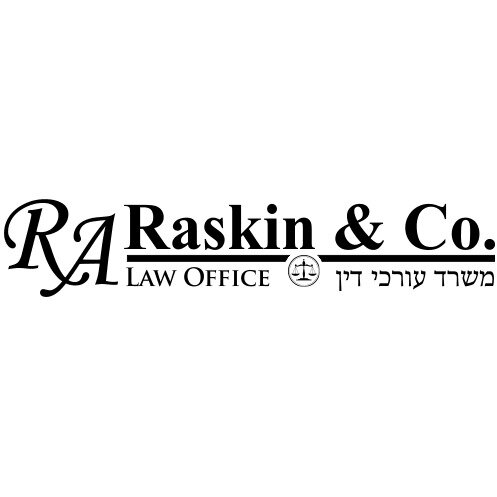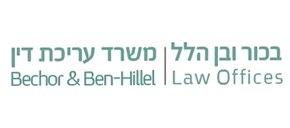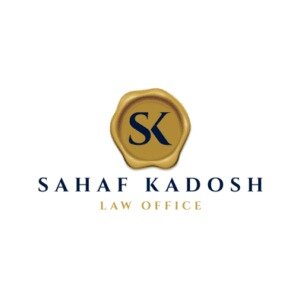Best Native People Lawyers in Israel
Share your needs with us, get contacted by law firms.
Free. Takes 2 min.
Or refine your search by selecting a city:
List of the best lawyers in Israel
About Native People Law in Israel
In Israel, the term "native people" primarily refers to the indigenous Bedouin population in the Negev Desert and some other indigenous groups. These populations have specific cultural, social, and legal needs that have garnered special legal frameworks to ensure their rights and recognition. The State of Israel has made various efforts to integrate these communities through land settlement policies, socio-economic development programs, and legal provisions pertinent to their unique status.
Why You May Need a Lawyer
Individuals from native populations in Israel may require legal assistance for various reasons, including land disputes due to conflicting land claims, issues relating to the recognition of Bedouin villages, and challenges involving civil rights. Legal help can also be necessary for navigating governmental processes for acquiring permits, resolving tribal disputes, or engaging with state-led initiatives aiming at the socio-economic uplifting of native populations. Additionally, addressing matters related to education, healthcare, and housing rights often require specialized legal expertise.
Local Laws Overview
Native people in Israel are subject to a complex interaction of traditional customs and modern laws. The key aspects of local laws concern land ownership and usage, including efforts to settle native land claims and establish recognized townships. Issues often arise due to the historical context of unrecognized villages, which can lead to complications in accessing infrastructure and services. Legal frameworks also pertain to cultural preservation and the inclusion of traditional governance structures within the wider legal system, reflecting a balance between integration and cultural autonomy.
Frequently Asked Questions
Who are considered native people in Israel?
Native people in Israel primarily include the Bedouin communities and some other indigenous groups residing in specific regions, such as the Negev Desert.
What are the main legal challenges faced by native people in Israel?
The main challenges include land ownership disputes, recognition of unrecognized villages, and issues related to accessing state resources and services like education and healthcare.
How does the Israeli government recognize native land claims?
The government engages in processes to regularize land claims, which involve legal adjudications, compensations, and efforts to establish recognized settlements for native peoples.
What legal rights do native people have regarding their traditional lands?
Native people have rights that are protected under specific legislative frameworks, aiming to balance traditional claims with state laws on land ownership and usage.
Can native legal customs be recognized in Israeli courts?
To some extent, native customs are considered, particularly in matters related to tribal governance and dispute resolution, but these must often align with overarching Israeli legal standards.
What role do tribal leaders play in legal processes?
Tribal leaders often play crucial roles in negotiating with government bodies, representing community interests, and mediating disputes within their communities.
Are there any educational initiatives for native legal issues?
Yes, there are programs aimed at raising awareness and understanding of legal rights among native populations, including those focused on land rights and resource access.
How are disputes between native people and government bodies typically resolved?
Disputes can be resolved through legal negotiation, mediation, or, if necessary, litigation within the Israeli court system, often with an emphasis on reaching amicable settlements.
What is the status of unrecognized Bedouin villages?
The status of unrecognized villages remains a complex issue, with efforts ongoing to negotiate settlements and integrate these areas into formal administrative frameworks.
Can native populations seek legal aid for free or at reduced costs?
Several organizations and legal aid services offer assistance to native populations, often providing free or significantly reduced-fee legal support depending on the case's nature.
Additional Resources
Individuals seeking legal advice or support can contact governmental bodies such as the Israeli Ministry of Justice or the Authority for the Economic Development of the Minority Sectors. Non-governmental organizations, such as The Association for Civil Rights in Israel (ACRI), also offer valuable resources and assistance. Academic institutions may provide research and advocacy in this field, supporting both legal practitioners and native communities directly.
Next Steps
If you need legal assistance related to native people in Israel, begin by identifying the specific nature of your legal issue. Gather relevant documents and evidence that pertain to your case. Consider reaching out to legal aid organizations specializing in this area for initial consultations. Engaging a lawyer with expertise in native peoples' law will help navigate the complexities and advocate effectively for your rights or community's concerns. Stay informed about recent developments in laws and policies affecting native populations to better understand your position and options.
Lawzana helps you find the best lawyers and law firms in Israel through a curated and pre-screened list of qualified legal professionals. Our platform offers rankings and detailed profiles of attorneys and law firms, allowing you to compare based on practice areas, including Native People, experience, and client feedback.
Each profile includes a description of the firm's areas of practice, client reviews, team members and partners, year of establishment, spoken languages, office locations, contact information, social media presence, and any published articles or resources. Most firms on our platform speak English and are experienced in both local and international legal matters.
Get a quote from top-rated law firms in Israel — quickly, securely, and without unnecessary hassle.
Disclaimer:
The information provided on this page is for general informational purposes only and does not constitute legal advice. While we strive to ensure the accuracy and relevance of the content, legal information may change over time, and interpretations of the law can vary. You should always consult with a qualified legal professional for advice specific to your situation.
We disclaim all liability for actions taken or not taken based on the content of this page. If you believe any information is incorrect or outdated, please contact us, and we will review and update it where appropriate.
Browse native people law firms by city in Israel
Refine your search by selecting a city.
















